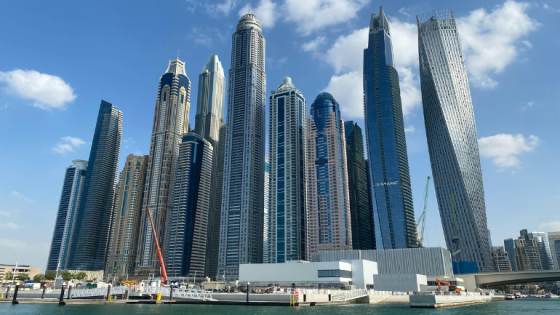Contents
- 1 Employee Compensation UAE Benefits
- 2 Employee Compensation UAE Benefits Policy
- 3 Employee Compensation UAE Laws
- 4 UAE Employee Compensation Benefits Program Design
- 5 Mandatory Employee UAE Benefits and Payment of Wages
- 6 How Employers Should Pay Salaries
- 7 Categories Exempt from WPS Compliance
- 8 Statutory Employee Compensation UAE Benefits
- 9 Leaves Compensation Structure in the UAE
- 10 Supplemental Employee Compensation UAE Benefits
- 11 Employee Compensation Benefits for Expatriates
- 12 Employee Compensation UAE Benefits Taxed
- 13 Restrictions for Employee Compensation UAE Benefits
- 14 Multiplier Management Employee Benefits
- 15 Global Compensation and Benefits
- 16 Industry Employee Compensation UAE Salaries
- 17 UAE Employment Contracts and Labor Laws
Employee Compensation UAE can be a game changer for your business, but it may not always be available in your home country. This is why more organizations are going beyond their borders to attract elite talent, with the United Arab Emirates (UAE) serving as one such pool of possible candidates. To keep the best individuals in the UAE, you must provide a competitive benefits package, which includes comprehending the necessary regulations and legislation. Noncompliance can result in a slew of issues and significant penalties, causing harm to your organization. This article will cover all you need to know about employee perks in the UAE, including what you are required to provide by law.
Read more: Business Opportunities UAE: Profitable Ideas for Successful Businesses in Dubai
Employee Compensation UAE Benefits
In the UAE, nearly all employees (including local and foreign nationalities) are eligible for perks, while some benefits are not available to expatriate workers. There are several significant contrasts between the public and private sectors. It is also worth noting that different restrictions apply to employees in other jurisdictions, including the Dubai International Financial Centre (DIFC), the Abu Dhabi Global Market (ADGM), and the UAE Free Zones.
Most part-time workers receive the same paid holidays and gratuities as full-time employees, though this varies by locality. Temporary workers who are employed for fewer than 30 days are eligible for lower benefits. Self-employed freelancers are not entitled to statutory benefits in the UAE.
Employee perks are the perks that a business provides to its employees in addition to their predetermined income or wage. These perks may take the shape of monetary or non-monetary characteristics that increase employees’ overall remuneration. Some common instances of employee benefits are listed below:
- Employee Provident Fund.
- Health insurance for employees.
- Paid leave.
- Statutory leave.
- Maternity and Paternity leaves.
- Allowances, such as transportation allowance.
- Gratuity.
- Reimbursement for cell and Internet bills.
Read more: Employee Benefits UAE: A Comprehensive Guide to Employment Perks and Compensation
Employee Compensation UAE Benefits Policy
A survey conducted by Bayt.com and YouGov demonstrates the relevance of having a good employee benefits policy in the UAE for businesses to attract and retain top personnel. Even the UAE labor law mandates some employee benefits that all employers must provide to their employees without fail for employee wellbeing. Furthermore, we will go over the UAE’s salary and employee benefits policies in detail. This survey highlights the most recent trends in employee policy attraction, engagement, and retention in the UAE. According to a poll, the three elements attracting prospective employees to join a company in the UAE are:
- Salary and compensation: (64%).
- Office atmosphere: (61%).
- Job security: (50%).
And after joining, the elements driving loyalty are:
- Job security: (38%).
- Career opportunities: (37%).
- Training and development opportunities: (35%).
Read more: UAE Career Development Opportunities; Job opportunities and development careers
Employee Compensation UAE Laws

In the UAE, Federal Decree-statute No. 33 of 2021 is the primary statute governing Labor Law, its correlative Executive Regulations, and all other ministerial orders that implement these laws. These laws govern employer-employee relationships. These laws apply to all national and foreign works, except for:
- Federal and municipal government leaders and employees.
- Armed forces, police, and security personnel.
- Workers covered under DIFC (Dubai International Financial Center) Employment Law no. 2 of 2019, as well as ADGM Employment Regulations 2019.
Except for sustaining employment connections, these rules protect employees from wrongful terminations and provide businesses with guidance on minimum wage standards, remuneration and employee benefits, retirement plans, and other employment-related issues.
Read more: UAE Industry Trends; Forecast growth for ICT sector & Construction Market Size
UAE Employee Compensation Benefits Program Design
To develop a compensation package in the UAE, companies must consider the needs of their employees, the corporate budget, the country’s statutory compensation rules, and the local economic conditions. Here is a simple approach to designing an efficient Employee Benefits Programme in the UAE.
Establish Clear Goals
To create an effective Employee Benefits Program, organizations must first establish clear goals. Several factors determine the shape, scope, and structure of such a program, including the number of employees, their demands, and the motivation for providing benefits.
Take stock of the Firm’s Budget
After determining the aims of the planned Employee Benefits Program, the employer should examine the budget accordingly. It is critical to remember that any gap between the program’s expected budget and the cash available to employers can result in a significant financial imbalance for your firm.
Identify the Employees’ Primary Needs of a Compensation Program
At the heart of any employee benefits program are its recipients, or employees. When designing such a program, keep in mind the key requirements of the program’s personnel. The simplest approach to do so is to solicit feedback from them via surveys and focus groups. You may also conduct secondary research on employee expectations regarding remuneration packages in the UAE.
Carry out the Cost-Benefit Analysis
Employers must calculate the entire estimated cost of the program to the organization, as well as the average cost per employee, and then assess whether the cost and predicted benefits (reduced attrition, increased employee satisfaction, and productivity) are feasible.
Program Execute
After making the necessary changes to the program, the employer can proceed to execute it. Employees should keep in mind that all components of the employee benefits program must be compliant with UAE regulations.
Revise and Evaluate
Employers must periodically examine their benefits package and solicit feedback from employees to determine how happy they are with the perks. Understanding and aligning with employees’ requirements can help organizations provide the best benefits package and achieve their objectives.
Read more: UAE Job Market Trends; job opportunities in demand in hiring market trends
Mandatory Employee UAE Benefits and Payment of Wages

Every employer is responsible for paying salaries by the due date. To avoid penalties and fines, private sector businesses should ensure that their employees’ salaries are paid through the Wages Protection System (WPS).
Minimum Salaries
There is no global minimum wage or compensation required for expats in the UAE. The minimum pay and salary for UAE nationals are established based on their educational qualifications. The chart below shows the minimum pay based on a UAE citizen’s highest educational qualification. The Minimum Wage According to UAE nationals have the following educational qualifications:
- No High School graduation: 3,000 dirhams.
- High school graduation costs 4,000 dirhams per month.
- College certificate: 5,000 dirhams per month.
Report Underpaid or Delayed Salary
Employees with issues or complaints about unpaid or delayed paychecks can contact the Ministry of Human Resources and Emiratisation (MoHRE) or file a salary complaint. Wages are paid by Ministerial Resolution No. 598 of 2022 Regarding the Wages Protection System.
Social Security UAE Benefits
All companies in the United Arab Emirates are required to contribute 12.5% of their employee’s gross salary or wage to social security benefits. The employee is required to contribute 5% of his or her gross remuneration, while the government of the country contributes 2.5%. The aforementioned provision only applies to UAE and GCC nationals. Expatriates are not eligible for this type of compensation in the UAE.
Read more: Working Hours Regulations UAE: Navigating Labour Laws for Employment Success
How Employers Should Pay Salaries
The employee’s earnings are due on the first day of the month after the end of the period indicated in the employment contract. If no term is mentioned in the employment contract, the employee must be paid at least once a month. If the employer fails to pay the wage within the first 15 days following the due date, unless a shorter term is agreed upon in the employment contract, he is in default.
All employers registered with the Ministry of Human Resources and Emiratisation (MoHRE) must use the ‘Wages Protection System (WPS)’ to pay their employees’ wages on time. Employee pay will be sent to their accounts in banks or financial institutions that have been approved by the UAE Central Bank to perform the service. MoHRE does not handle transactions or deal with the owners of firms that are not WPS-registered until they register in the system. Payment can be made in Emirati Dirham, the UAE’s official currency, or any other currency agreed upon by both parties in the employment contract.
Read more: Business Ownership UAE: A Guide to Foreign Companies Mainland Ownership
Categories Exempt from WPS Compliance
The following employee groups are exempt from the WPS, as reported by MoHRE:
- Those who sued over wages.
- Employees who have been reported absent via a ‘work abandonment’ report.
- New employees during the first 30 days of their wage due date.
- Those on unpaid leave provided that supporting paperwork is properly presented to the MoHRE.
Additionally, the following groups of employers are exempt from WPS compliance:
- UAE nationals who own fishing boats.
- The UAE nationals who own public taxis.
- Banks, and institutions of worship.
Read more: Business Networking UAE: The Power of Uniting Dubai’s Top Networking Events and Companies
Statutory Employee Compensation UAE Benefits

Under UAE labor law, businesses are required to provide a variety of statutory benefits. They are:
UAE Employer Contributions
Nationals and foreign employees are not subject to income tax in the UAE, although employers are required to make social security contributions on their behalf. These are determined as a percentage of the employee’s total monthly compensation, as shown below:
- 15% in Abu Dhabi.
- 12.5% across the remainder of the UAE.
UAE Leave Entitlements
Employees in the UAE are entitled to 30 days of paid vacation per year (if they have completed at least three months of continuous service). There are 14 official public holidays that employees can take, including:
- New Year’s Day.
- Prophet’s Ascension.
- Eid al-Fitr Eve.
- Eid ul Fitr.
- Day of Arafat.
- Eid ul Adha.
- Islamic New Year.
- Prophet’s birthday.
- Commemoration Day.
- National Day.
Working Hours Per Day/Week
The working hours in the private sector are eight hours each day, or 48 hours per week. School and university working weeks for public personnel last four hours. Employees are entitled to one or more breaks during working hours if their job exceeds five hours. These breaks do not count as working hours.
Overtime Extra Hours
Employers may need to ask employees to work additional hours. In that situation, it cannot be more than two hours per day.
- Employees will be paid an additional 125% for any additional working hours on typical days.
- Employers must pay employees 150% more for overtime worked between 10 p.m. and 4 a.m. than for normal working hours.
- Employers can reward employees for working on off days by providing a rest day or paying at a 150% rate.
Read more: Business Mentorship UAE: Nurturing Success Through Expert Guidance in Dubai
Leaves Compensation Structure in the UAE
Minimum amount of leaves per calendar year: The UAE’s remuneration structure includes unique leave policies. The UAE’s leave benefits require all employees to be entitled to at least 30 days of paid leave every calendar year once they have completed 12 months of service.
Official Holidays
In addition to 30 days of paid leave, 2024 includes 15 public holidays.
The Sick Leave
The United Arab Emirates has generous sick leave regulations for its employees. After three months of work with their current business, an employee in the UAE is entitled to 90 days of sick leave every year. The aforementioned leave will be classified as paid leave and will require the filing of a medical certificate within 48 hours of the first day of absence. Although the first fortnight of sick leave is completely paid, the remaining 40 days are paid at 50%.
The Maternity Leave
The United Arab Emirates’ compensation laws include provisions for maternity payments, as do the majority of countries. Maternity benefits in the UAE include a 60-day paid maternity leave for female employees who have been with a firm for more than a year. The first 45 days of the aforementioned leave are fully compensated, with the last 15 days being 50% paid.
The Paternity Leave
The UAE’s pay and benefits policy includes provisions for paternity leave. Individuals working in the private sector in the country are entitled to at least 5 days of paternity leave. However, the aforementioned benefit must be used no later than six months after the birth of an employee’s child.
The Pilgrimage Leave
Pilgrimage leave (Haj Vacation) is one of the UAE’s employee pay and perks. According to UAE employment law, all employees can take a 30-day leave to go on pilgrimage. This leave, however, will be unpaid and available just once throughout an employee’s stay with the business.
The Compassionate Leave
Employees in the United Arab Emirates can take compassionate leave in the following circumstances:
- Death of a spouse (5-day leave is allowed).
- Death of a parent, sibling, child, or grandparent (3 days’ leave is allowed).
The Study Leave
Employees in the United Arab Emirates who are enrolled in a recognized educational institution in the country are entitled to 10 days of study leave. However, the aforementioned leave can be taken only after two years of employment with their current employer.
The Severance Pay
Severance pay is a key employee perk in the United Arab Emirates. The following provides a brief overview of severance pay regulations in the United Arab Emirates:
- Employee’s Tenure: 1 to 5 years of severance pay: For every year of service, you will be paid for 21 days.
- From 5 years onwards, 30 days of pay for each year of service over 5 years.
The entire amount of severance pay must be less than two years’ salary and paid within 14 days of the termination date of an employment contract.
Gratuity of End Service
All foreign employees who have worked in the UAE for at least 12 months are eligible for an end-of-service gratuity. It is provided as a one-time payment after employment and is based on the employee’s basic salary, increasing in value with each year worked. The amount of gratuity that an employee is entitled to depends on the following:
- Whether they are engaged on a limited, fixed, or unlimited contract.
- Total amount of years served.
- Reason for leaving their job.
- Basic pay.
Read more: Business Marketing UAE: Unlocking Digital Success in Dubai and Beyond
Supplemental Employee Compensation UAE Benefits

The benefits described above are the minimal minimum required by law. To attract the top applicants, you must provide a competitive wage package that includes an appealing benefits stack. Here are some of the most appealing supplementary perks you can provide:
The Health Insurance
In some places of the UAE, you may not be legally compelled to provide insurance. However, because health care is expensive, medical insurance is an appealing bonus for many candidates, particularly expats who want health insurance to obtain a work permit. If you are currently required to provide a minimum health insurance package, try offering a more complete and generous plan to differentiate yourself. Health insurance contributions are not required for UAE citizens, save for:
- Abu Dhabi: Under the Abu Dhabi Health Insurance Law, employers must provide a compliant insurance plan for their employees and family members in the UAE.
- Dubai: Employers must provide medical insurance that complies with the Dubai Health Authority (DHA). They do not have to offer insurance for dependents.
If an employer fails to meet the insurance policy criteria, they may face fines or restrictions when acquiring visas. It is prohibited for expatriates to work without valid medical insurance.
The Pension Benefits
Because expatriate workers do not qualify for the statutory pension scheme, a private pension plan can be an attractive option for international employees in the UAE. To assist employers in preparing for retirement, you might offer private pension contributions or establish a pension savings scheme.
Bonuses in the UAE
Bonuses are not required in the UAE, but they are commonplace. As a result, to remain competitive in the talent market, you must offer some form of bonus system. Banks or financial institutions having headquarters in the European Union (EU) must follow EU legislation when giving bonuses in the UAE.
Transport Packages
Expats find relocation packages, as well as living and travel allowances, to be tempting incentives.
Extra Time Off
Many people opt to reside in the UAE because of the country’s appealing lifestyle, and additional paid (or unpaid) leave can be a significant incentive for those who want to take advantage of it. Positioning yourself as a business that embraces freedom and flexibility will not only recruit but also retain excellent workers.
Soft Benefits Packages
If you’re a tiny business, you may not have the resources to offer costly incentives to attract top candidates. However, you can still provide a wide range of appealing and reasonable perks. Flexible working hours, flexibility of travel, and diverse teams are examples of “soft” perks that can be just as tempting as monetary incentives.
Training and Workshops
Workshops and free courses are excellent fringe benefits for employees looking to learn and improve their abilities. It improves their professional possibilities. As an employer, you may show your employees that you care about their personal growth by offering complimentary training.
Read more: Business Insurance UAE: Safeguarding Dubai’s Corporate Ventures
Employee Compensation Benefits for Expatriates

Employee salary and perks in the UAE apply to both citizens and expatriates. Except for a few benefits reserved exclusively for UAE nationals, all mandatory employee benefits are granted to all employees in the country.
Read more: Business Incubation UAE: Nurturing Startups in Dubai’s Incubation Centres
Employee Compensation UAE Benefits Taxed
Employee benefits are exempt from personal income tax in the UAE. As a result, businesses are generally not obligated to deduct any taxes from their employees’ salaries or wages. This also applies to several perks. If a company is unsure about the taxability of a certain employee, it can seek assistance from the country’s tax agency.
Read more: Business Incorporation UAE: Dubai’s Path to Company Formation and Registration
Restrictions for Employee Compensation UAE Benefits
There are no specific limitations on employee remuneration and perks in the UAE. As long as all applicable laws are followed and mandatory compensation and benefits are delivered to employees, there is no limit to the amount of benefits that a business can offer to its employees. The only limitation could be having an entity give these perks to employees. If you do not have an entity in the UAE, the best option is to work with an Employer of Record such as Multiplier. EOR acts as a co-employer, assisting you in complying with local rules and regulations while handling payroll and benefits for your employees.
Read more: Business Infrastructure UAE: Paving the Path to Prosperity in the Emirates
Multiplier Management Employee Benefits
Employees have recently grown more aware of their rights and labor regulations, which provide them with value and protection in addition to minimum salaries and obligatory benefits. If you are looking to grow your business in the UAE and are having difficulty understanding the compensation and benefits rules, as well as other compliances, you can work with (Multiplier). Multiplier is a global employment solution that provides Employer-of-Record services and assists firms in creating the finest employee benefits for their employees while remaining compliant with the country’s labor laws. The superb EOR suite provides the following advantages:
- Multi-country and multi-currency payroll.
- Management of employee benefits.
- Employee costs Management.
- Complying with local tax rules.
- Drafting multilingual contracts.
Read more: Business Funding Consultants Dubai: Your Strategic Guide to Startup Financing
Global Compensation and Benefits
As globalization continues, an increasing number of international firms choose to expand into the dynamic and opportunistic market of the United Arab Emirates (UAE). As the Middle East’s economic superpower, the UAE provides a unique combination of geographic advantage, enormous oil resources, and liberal economic policies, making it an ideal environment for corporate development. However, organizations operating in the UAE confront a variety of obstacles, one of which is developing fair compensation and benefits plans to attract and retain top people.
Read more: Business Financing UAE; Your Guide to SME and Corporate Business Loans in Dubai
Industry Employee Compensation UAE Salaries
The UAE has a strong economy and many industries, and salaries vary according to industry, position, and individual expertise. Here’s a full breakdown of salaries in seven major industries in the UAE:
Gas and Oil Industry
As the UAE’s backbone industry, salaries are often high. Senior petroleum engineers can expect to make 600,000 to 800,000 dirhams per year, while novice engineers can earn 300,000 to 400,000 dirhams. Salaries for geologists and project managers are likewise high, ranging from 500,000 to 700,000 dirhams annually.
The Financial Services Industry
The UAE’s financial services business is thriving, drawing many international financial institutions and talent. Senior financial analysts’ annual salaries range from 400,000 to 600,000 dirhams. Investment advisers and risk managers earn good incomes, ranging from 300,000 to 500,000 dirhams per year.
Real Estate and Construction Industry
With the acceleration of urbanization, salaries in this industry are gradually rising. Annual pay for senior architects and engineers ranges from 500,000 to 700,000 dirhams. Salaries for roles like project managers and sales managers typically vary between 400,000 and 600,000 dirhams yearly.
The Retail Industry
The retail industry in the UAE concentrates on high-end and luxury brands, which results in relatively high-income levels. Senior retail managers’ annual wages range from 300,000 to 400,000 dirhams. Ordinary salespeople and store employees often make 150,000 to 250,000 dirhams each year.
The Tourism Industry
The tourism business in the UAE is highly developed, particularly in cities such as Dubai. Annual pay for tourism advisors and tour guides often vary between 200,000 and 300,000 dirhams. Senior tourism management personnel might make 350,000 to 450,000 dirhams per year.
The Education Industry
The UAE is increasing its investment in education, drawing many international instructors and education professionals. Annual pay for overseas instructors typically varies between 300,000 and 500,000 dirhams. School administrators and education consultants also earn high wages, often ranging from 400,000 to 600,000 dirhams per year.
Information Technology Industry
Salaries in the IT industry are steadily increasing as the digital transition accelerates. Software engineers and data analysts often have yearly salaries ranging from 350,000 to 550,000 dirhams. Senior network security professionals and IT administrators may make more than 600,000 dirhams per year. It is crucial to remember that the following compensation data are estimates, and actual salary levels may vary depending on company size, performance, particular roles, experience, and talents.
Read more: UAE labor law: important terms, regulations, and key benefits
UAE Employment Contracts and Labor Laws

The new Labour Law (Law No. 33 of 2021 on the Regulation of Labor Relations in the Private Sector), which went into effect on February 28th, 2022, requires that all employees in the UAE be employed on fixed-term employment contracts of no more than three years, which can be extended for the same or a shorter period. Unlimited-term employment contracts are no longer permitted in the UAE. Employers who do not follow this rule may face sanctions.
The UAE Labor Law requires that all employment contracts be in writing and Arabic, including an English version for non-Arabic speaking employees. The contract must include information on the job title, duties, terms of employment, working hours, and salary. If the employee is a foreign national, the contract must include accommodation, airfare, and residency visa sponsorship provisions.
Read more: Annual Leave Entitlement UAE; Guide to New Labour Law for Employees and Leave Salary Calculation
What is the settlement for employees in UAE?
The UAE severance pay is computed based on the employee’s basic salary and duration of service: For the first five years of service, there are 21 calendar days of basic salary per year. After five years of service, there are 30 calendar days of basic salary for each additional year.
What is the compensation given to employees?
Employee compensation is what you pay each employee in exchange for their job. It’s a combination of earnings and benefits. A compensation package may include salary, employee benefits, commissions, and stock options, but the appropriate remuneration for each employee is determined by some criteria.
What is the compensation for workers in the UAE?
Employers are legally required to have liability insurance that compensates employees for workplace sickness and accidents. The lowest compensation given is AED 18,000, while the maximum is AED 35,000. Valid in the United Arab Emirates.
What is the compensation for dismissal in UAE?
The severance pay will be computed as follows: For the first five years of employment, each employee is paid 21 days’ wages. 30 days’ salary for each extra year of employment, with a maximum severance pay of two years’ wage.
Employee Compensation UAE ensures that both new employees and those in senior positions receive fair treatment and benefits. Understanding an employee’s gross salary, severance pay, and wages is crucial for employers and employees. Dubai-based employers must adhere to continuous Social Security Benefits to support their workforce. By comprehending these aspects, employers can create a conducive work environment, ensuring optimal employment conditions and compliance with labor laws in the UAE.









